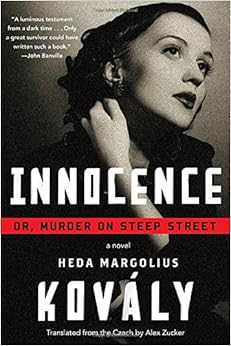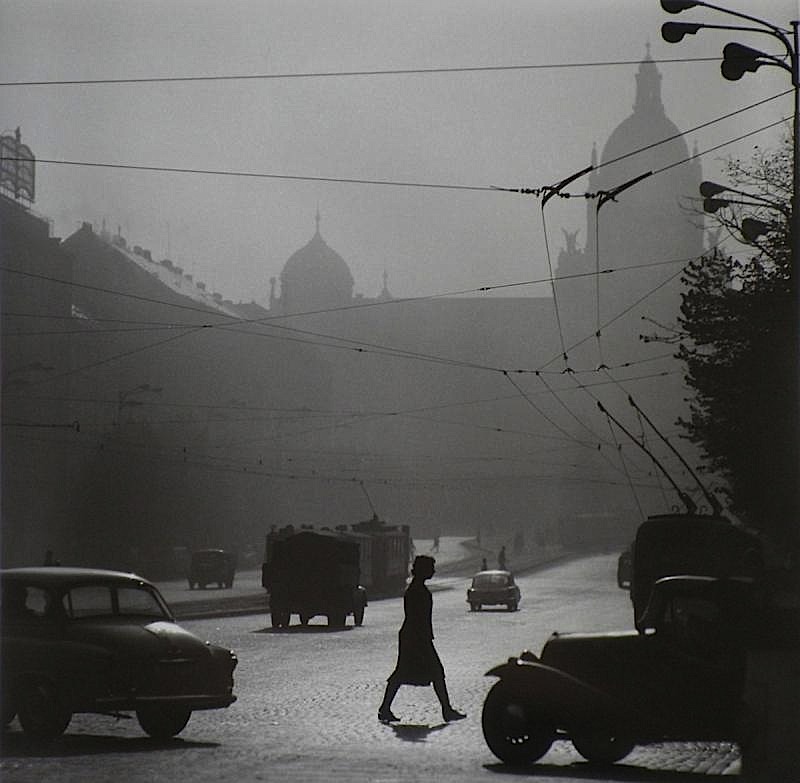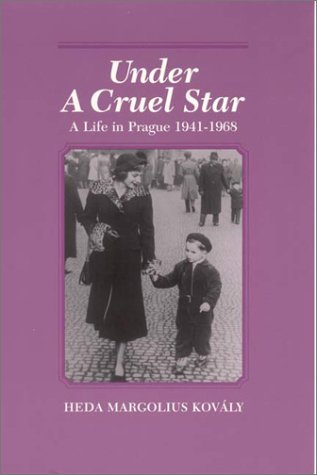
After World War II, Czechoslovakia had a brief period of democracy until 1948, when it fell to a Communist coup and became a satellite of the USSR. Like so many European Communist states during the Stalin era, party apparatchiks could suddenly find themselves accused of imaginary crimes against the state and lose their positions or even their lives. State Security officials and their informants monitored and reported on activities of ordinary citizens, so that one never knew if co-workers, friends or even family members could be trusted not to be informers.
That’s the background of Heda Margolius Kovály's Innocence, Or Murder on Steep Street. Helena Novákova's world is turned upside down when she loses her job at a publishing house and her husband is arrested and imprisoned as a spy. He isn't, but truth isn't a priority in the paranoid security state.
 |
| Fruit and vegetable store in 1950s Prague |
At the same time that we read about the dual lives of the various Horizon staff members, another thread is Helena's attempts to find help for her husband. These two threads come together in an unexpected way. It's intriguing, but the wrap-up is murky and strays past enigmatic to confusing. In a few other places the writing lacks clarity. Overall, though, I still found it a very readable and atmospheric story.
 |
| credit: Marie Šechtlová |
Knowing Kovály's own story isn't necessary to appreciate this stark story of pervasive falsity and fear, but I think it does add something when you know how close this was to home for her. She and her first husband were Holocaust survivors who made it home to Prague, where her husband became an enthusiastic Communist. He was caught up in the infamous Slánský show trials and was executed. When you know that, Helena's thoughts and actions are especially moving.
If you're interested in knowing more about Kovály, read her stunning memoir, Under a Cruel Star: A Life in Prague, 1941-1968.
Notes: I received a free advance review copy of the book. Versions of this review may appear on Amazon, BookLikes and other reviewing sites under my usernames there.

No comments:
Post a Comment